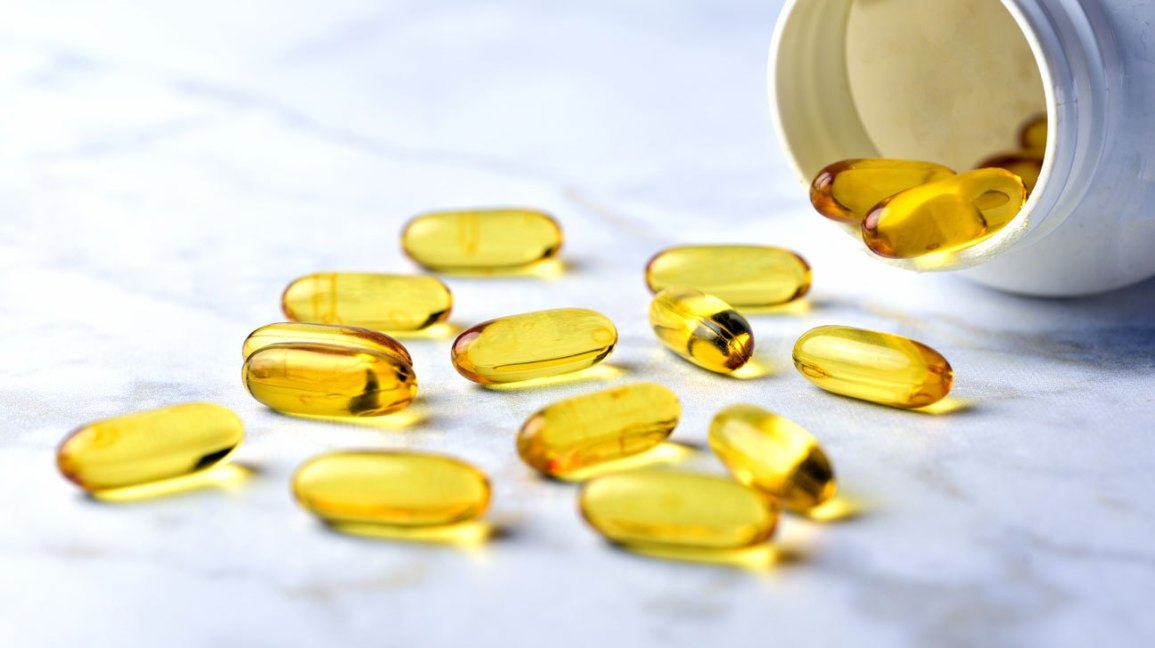Omega acids are among the important group of fatty acids, good for the body. While there are three types of them – Omega-3, Omega-6, and Omega-9; the Omega-3 and Omega-6 fatty acids are essential, which means that the human body cannot produce them. Consequently, you need to get them from your diet through Omega acid rich foods.
Omega-3 acids also come with a broad spectrum of benefits for the heart, mind, and bones. It is recommended that foods rich in these acids be a part of your regular diet in adequate quantities. They are commonly found in seafood and plant seeds, with the option of taking Omega-3 supplements also available to the people.
To fully understand why they are essential for the body, let us take a look at some of their benefits.
How can Omega-3s help the body?
Omega-3 acids are among the few groups of fats, which have been studied thoroughly. The research is still being conducted on the subject. Here are a few ways in which Omega-3s help the body:
- Mental Health: Many researchers have found that people consuming Omega-3 food on a regular basis are less likely to be depressed. They have also linked a drastic improvement in the symptoms of depression and anxiety as an impact of consuming the fats.
- Heart: Some of the important cardiovascular benefits include a reduction in blood pressure levels, blood clots, plaque, and inflammation.
- Joint and Bones: A few studies have suggested that Omega-3 acids can be useful in tackling osteoporosis and arthritis. They can also boost the amount of calcium in the bones, thus improving bone strength.
- Liver: Omega-3s are of great help when it comes to reducing fat in the liver, particularly for those afflicted with the non-alcoholic fatty liver disease.
- Cancer Prevention: Studies have shown that Omega-3 fatty acids can be used to reduce the risk of a few types of cancers. A few studies linked a lower risk of developing breast cancer in women and prostate cancer in men with consumption of the fats.
15 Foods with Omega-3 Acids
As we said earlier, Omega-3 fatty acids are most commonly found in seafood and plant seeds. These foods can easily be accommodated into your daily diet with minimal effort. It is also important to have a balanced amount of these ingredients.
Fish and Seafood Rich in Omega-3s
- Mackerel
Mackerel holds the highest quantity of Omega-3 acids per serving (close to 4,100 mg). They require little effort to cook and can be prepared in a variety of ways. The fish is also rich in Vitamin B12 – a good source to produce red blood cells.
- Salmon
Salmon is a nutrient-rich food that comes with a host of nutrients like protein, Vitamin B, magnesium, among others. Hence, it comes as no surprise to see it rich in Omega-3 too. Each serving contains a little over 4,000 mg of Omega acids. It is among the most popular fish in the world and can be found very easily.
- Herring
Herring is an oily fish that can be pickled, cooked or smoked. A standard fillet contains close to 3,100 mg of Omega-3s. This Omega fatty acid food also plans an important part in brain development and function. Various species of this medium-sized fish are found across the world.
- Sardines
Sardines are tiny little fish that are mostly eaten as a snack or an appetizer. They are meant to be eaten whole as that is when they are exceptionally nutritious. They are usually sold in tin cans, making it easy to eat on-the-go.
- Anchovies
Anchovies are another type of small fish that are also available throughout. It is found in the Pacific, Indian, and Atlantic Oceans, in addition to the Black Sea. It is also available in cans but can also be bought as dried. However, in comparison to Sardines, each serving of anchovies has fewer amounts of Omega-3s.
- Seaweed and Algae
If you are a vegetarian or don’t like to eat fish, you can still benefit from eating seaweed and algae. They can form a good part of a vegetarian diet and can be cooked in a variety of ways and styles. They are also sold as crispy snacks and used to wrap sushi.
Vegetarian Omega Acid Foods
Vegetarians can also get their fair share of Omega-3s if they are not that inclined to eat seaweed. There are a lot of options here dark green leafy vegetables like spinach and kale, soybean, and various seeds.
Seeds and nuts are generally associated with positive effects on your health. They can be eaten as is or can be consumed in their oil form. They go well with salads and more importantly, also contain other essential nutrients like calcium, potassium, and magnesium. Similarly, green vegetables are also excellent for health and provide ample benefits.
Here are some of the most popular vegan foods known for their Omega-3 acids benefits:
- Flaxseeds
Flaxseeds have an abundance of nutrients and serve health in a variety of ways. As a good source of fiber, they assist in digestion and can be bought as seeds, oil, or powder. Each tablespoon of flaxseeds contains a little over 2,300 mg of the fats, making it a good source of vegan Omega Acid food.
- Chia Seeds
Chia seeds are incredibly rich in Omega-3s, as each ounce contains roughly 5,000 mg of the acid. But that isn’t all – it is extremely nutritious and provides antioxidants and fiber. However, they may be harmful if not consumed properly or taken in excessive quantities.
- Hemp Seeds
Hemp seeds are another good source of Omega-3 acids. Its oil can be consumed to get a more concentrated dose of the fat. In addition to the Omega-3s, it also gives protein, magnesium, zinc, and iron. They are good for the heart, skin, and digestion and are commonly found in protein bars and oats although; they can be bought as a whole too.
- Walnuts
Walnuts have many proven health benefits, one of which is serving as an excellent source of healthy fats like Omega-3s. They also promote a healthy gut, reducing inflammation, and weight control. At the same time, excessive amounts of walnuts every day may pose a risk to health.
- Soybeans
Soybeans are among the best ways to get important proteins as a vegetarian, but they also contain high amounts of Vitamin K, potassium, fiber, and Omega-3s. It can be eaten in various forms: tofu, soy milk, cooking oil, making it rather easily accessible.
- Avocado
One of the most nutritious fruits out there is Avocados; numerous studies have emphasized the various advantages of eating avocados regularly. They are rich in heart-healthy fats like Omega-9s and also provide a lot of potassium, antioxidants, and fiber. They are good for health and can be found easily.
- Canola Oil
Canola oil is another type of health oil that serves the body if taken in the right quantities. In fact, it contains two of the three types of Omega fatty acids – Omega-3 and Omega-6. It also assists in reducing cholesterol levels and can help with skin ageing.
Omega-3 Fatty Acids Supplement
Omega acids can also be consumed as supplements. They are more concentrated than their natural counterparts and often contain all the three types of Omega acids (3, 6, and 9) in a suitable proportion. However, there are plenty of options available in the market and not all of them may have the same benefits. Most commonly, omega supplements are derived from fish and seafood.
Before going for an Omega acid supplement, you may also consult your doctor.
- Fish Oil Supplement:
Fish oil supplement is undoubtedly the most common Omega-3 supplement in the world. It has the highest dose among all the other options and consuming them regularly is good for your cardiovascular health, eye, and joint inflammation. You can also go for the cod liver oil, derived from the liver of codfish.
- Krill Oil:
Krill oil is obtained from krill: a small, shrimp-like creature found in the oceans. They are fairly more expensive than your regular fish oil supplements but can also give added benefits of antioxidants.
In a Nutshell
The human body always needs some amount of healthy fats in the right quantities to promote cardiovascular health. Omega acids are best consumed from oily fish and seafood. For vegetarians, the best way to get Omega-3 is through plant sources like flaxseeds, chia seeds, soybeans, and others. However, some of these foods may be quite allergic to you and in that case; you may opt for a supplement.




